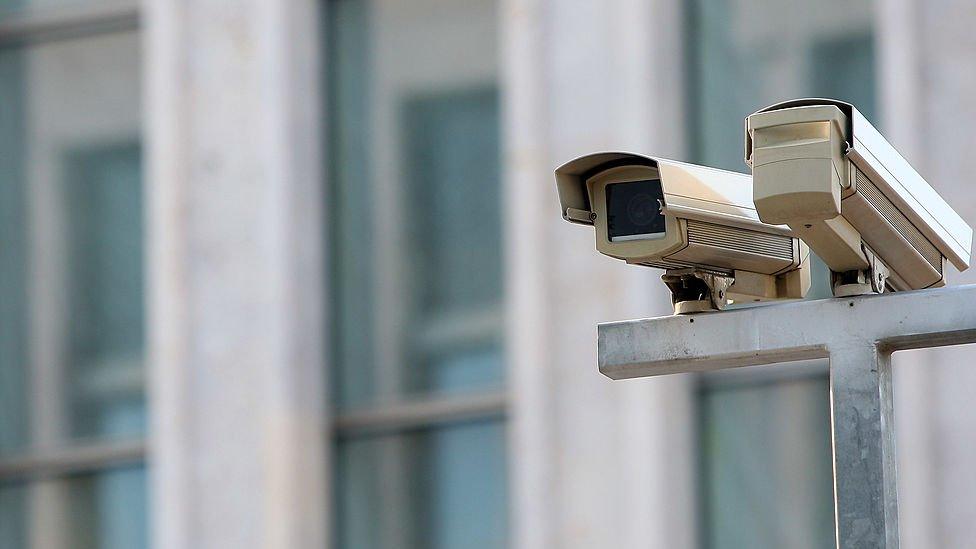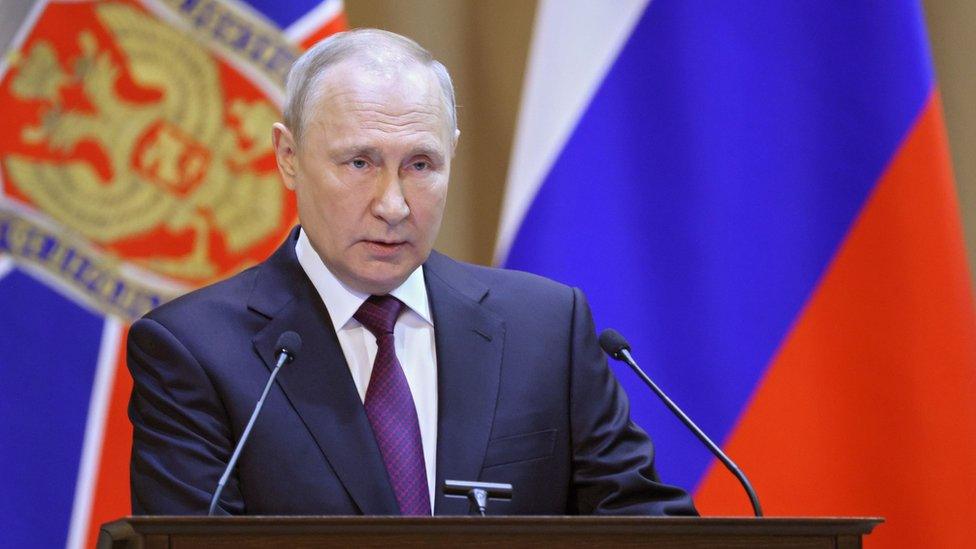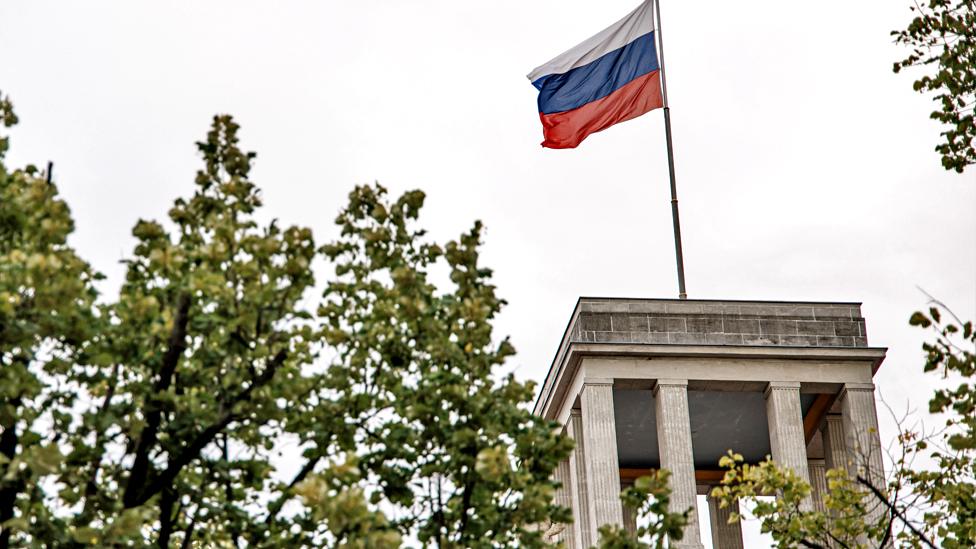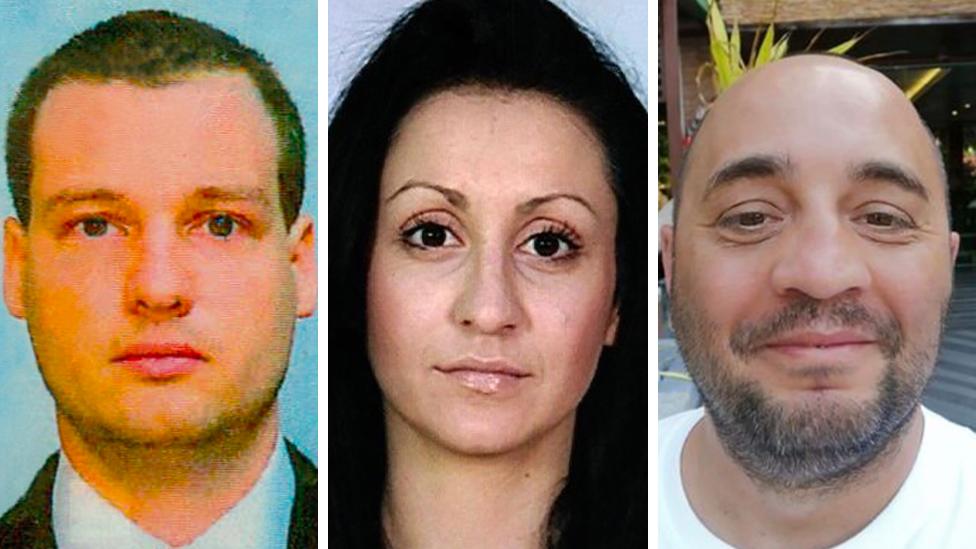Germany charges intelligence 'mole' with treason in Russia spying case
- Published

The intelligence officer and his alleged accomplice face charges of "treason in a particularly serious case"
A high-ranking German intelligence officer has been charged with treason for allegedly passing state secrets to Russia.
Prosecutors believe Carsten L shared intelligence about the war in Ukraine and the Wagner mercenary group and received roughly €400,000 (£340,000), according to German reports.
Another German man, who is suspected of having acted as a courier, has also been charged.
Both men could face life sentences.
The employee at Germany's foreign intelligence service (BND), known only as Carsten L in line with Germany's privacy rules, oversaw a department monitoring overseas telephone and internet communications.
He was promoted weeks before his arrest to a role responsible for background checks at the agency, according to Süddeutsche Zeitung and public broadcasters NDR and WDR.
Carsten L was arrested in Berlin last December. Police arrested his alleged accomplice, Arthur E, a month after he arrived in Germany on a flight from the US.
A German businessman born in Russia, Arthur E is accused of travelling to Moscow and handing intelligence to Russia's domestic spy agency, the FSB.
Both men have been charged with "treason in a particularly serious case" by Germany's prosecutor general, reports say.
A court in Berlin now needs to decide whether to hear the case.
German reports said Arthur E was a diamond trader who had "babbled like a brook" after his arrest. The two men had apparently first met at a private party at a football club in Bavaria in 2021 and that Carsten L had told him about his work at the BND.
The prosecutor's office has declined to comment on the reports that it has filed charges.
The head of the BND, Bruno Kahl, recently described the case as a shock for his agency.
But he told Tagesspiegel newspaper that much of the material that was passed on was of limited value and that the BND had stepped up its security measures to prevent further leaks.
There has been increased concern about Russian espionage in Europe following the invasion of Ukraine last February.
A number of countries, including the UK, Poland and Norway, have arrested or expelled suspected Russian spies.
Germany has been a particular focus in recent months: A government official who worked for an office dealing with military equipment was arrested last month on suspicion of spying.
Related topics
- Published29 March 2023

- Published10 August 2023

- Published15 August 2023
